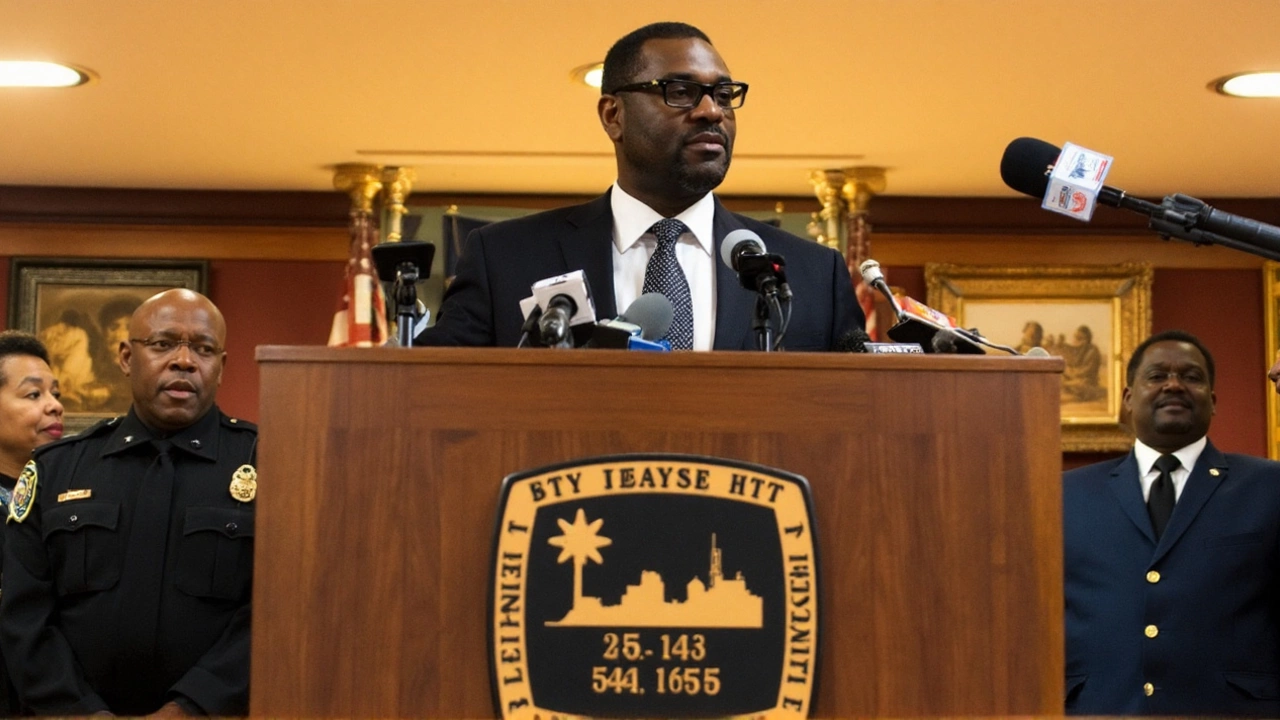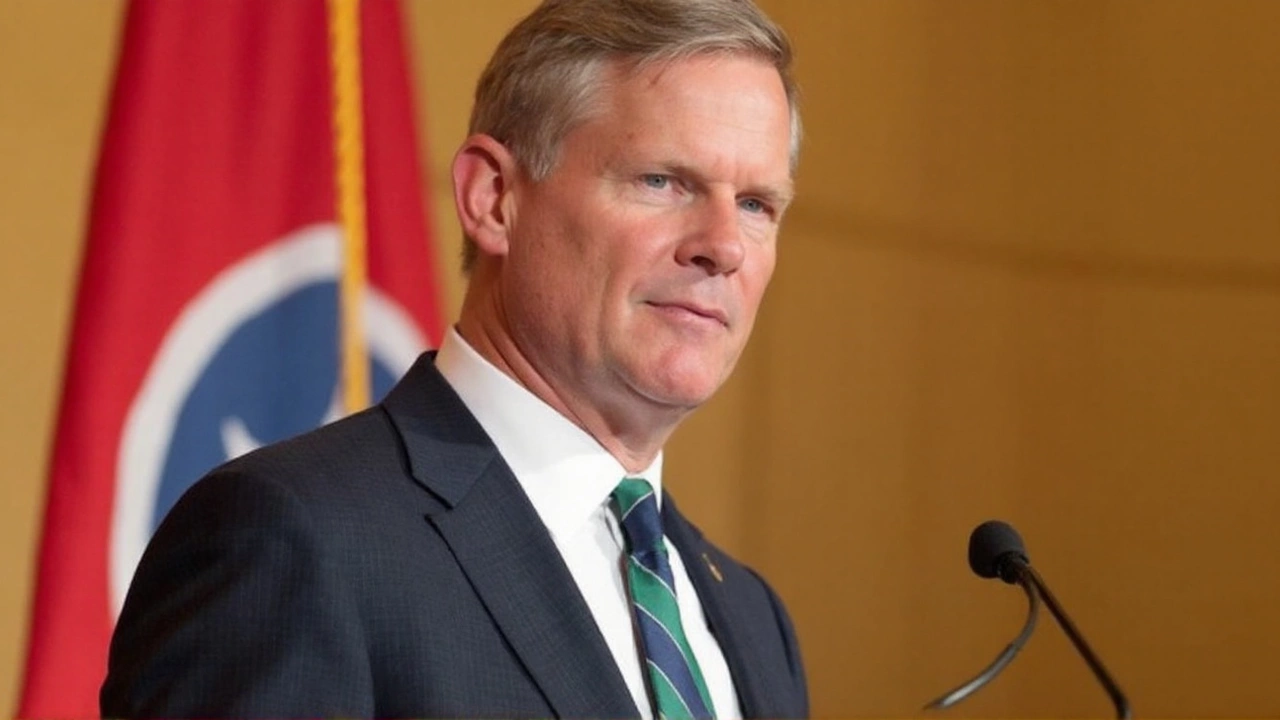Memphis weighs a National Guard role as crime fight enters a new phase
Memphis closed 2023 with a grim number: 390 homicides, a record for the city. Now, Tennessee Governor Bill Lee says he’s ready to bring more muscle to the fight, outlining a multi-agency mission built with the Trump Administration that could put the Tennessee National Guard alongside federal agents, state troopers, and local police. The plan is big, layered, and controversial—and it’s already dividing leaders who otherwise agree the city needs help.
Lee says his team has been in steady talks with the White House for months to shape a phased strategy that combines federal resources with state and local know-how. The next step, he says, puts several agencies on the same playbook: the Tennessee National Guard, the FBI, the Tennessee Highway Patrol (THP), the Memphis Police Department (MPD), and others working in concert. He describes it as a way to tighten the screws on repeat violent offenders while freeing up local officers for core patrols and neighborhood policing.
At the center is Operation Viper, an FBI-led push already running in Memphis. It uses a dedicated task force of federal, state, and local officers to hunt for the city’s most violent offenders. Officials say it has produced hundreds of arrests. Lee’s pitch is to accelerate that momentum: more manpower for surveillance and arrests, more investigators to build stronger cases, and a sharper focus on guns, gangs, and fugitives.
The governor has also ordered a fresh THP surge in Shelby County, with troopers working shoulder-to-shoulder with MPD through the Bluff City Task Force. That means more traffic enforcement on key corridors, more help with warrant roundups, and extra support when large incidents stretch MPD thin. The goal is to stabilize hot spots without pulling neighborhood officers off their beats.
Lee says he’s been in close contact with the Administration this week and plans to speak directly with President Trump to settle assignments and timelines. He’s framing the effort as an all-tools-on-the-table moment: if a federal asset can help Memphis, he wants it in play and in sync with local priorities.
There’s an important caveat: Memphis police say crime is down so far this year. We don’t have a full public breakdown of the numbers yet, but that trend is encouraging. It also raises the political stakes. If crime is already easing, supporters see a chance to push the trend faster. Critics ask whether more uniforms—especially the Guard—will help or just add tension.
That’s where the split appears. President Trump has said the city’s leaders welcome federal help. Memphis Mayor Paul Young made clear he did not request the Guard and doesn’t think it’s the right tool to reduce crime. Put simply: the governor is warmly backing a larger mission; the mayor is signaling caution.

How a Guard mission would work—and the open questions
The National Guard isn’t a street police force, and how it’s used matters. In most state public safety missions, Guard troops support law enforcement. Think perimeter security, traffic control, logistics, scene security after major incidents, and specialized help like aviation, intelligence support, or communications. Direct policing—like making arrests or running routine patrols—generally stays with sworn officers unless a specific arrangement is made under state law.
Command structure is another key piece. The Guard can operate under state authority directed by the governor, or it can be federalized. When Guard troops are under state control, they typically have more flexibility to support local enforcement while staying inside legal lines. When they’re federalized, different rules apply, including limits on direct law enforcement under federal law. Lee’s team and the Administration still need to spell out which status they’ll use and for how long.
For the FBI and other federal partners, the role is clearer: build cases on the people who do the most damage. That includes gun trafficking, repeat violent felons, carjacking crews, and gang leaders. Federal cases can carry stiffer penalties and give prosecutors more leverage. Operation Viper fits that mold, putting city and state officers on federal task forces that move fast and share intelligence.
THP’s part is direct and visible. Troopers flood high-traffic areas linked to violent crime—routes used for stolen cars, drugs, or illegal guns—and coordinate with MPD so officers aren’t tripping over each other. THP can also assist with crash scenes, DUI patrols, or large events, freeing MPD units for calls where local knowledge matters most.
Mayor Young’s position underscores a core tension. Local leaders are closest to the neighborhoods and feel the pressure if residents see a mission as too heavy-handed. The mayor didn’t ask for the Guard and questions the approach. His stance suggests he’d rather double down on targeted policing, better casework, and community strategies that pull the most violent people off the street without flooding neighborhoods with troops.
Politics always rides shotgun in these moments. The White House has talked up Guard deployments in other big cities, and Memphis is now part of that conversation. Supporters say the Guard can stabilize a city faster. Skeptics warn that uniformed soldiers on corners can erode trust, even if the intention is support, not policing.
What should Memphians expect if the mission launches? Likely more joint checkpoints on specific corridors, faster warrant sweeps for high-risk suspects, and more federal case filings against gun offenders and repeat violent felons. On the back end, that pressure only works if prosecutors and courts move cases quickly. If not, arrests pile up without long-term impact.
Community groups will watch closely. In other cities, residents have raised worries about civil liberties when multiple agencies surge at once. Clear rules of engagement, transparent data on stops and arrests, and good complaint systems help reduce mistakes. Coordination is the difference between a smart, surgical mission and a blunt one that frustrates people on their way to work.
To track this effort, here are the practical questions the governor and the Administration still need to answer:
- Mission status: Will Guard troops operate under state authority or be federalized, and for how long?
- Scope and footprint: How many Guard members are expected, and what neighborhoods or corridors will they support?
- Roles and limits: What tasks will the Guard handle (perimeter, logistics, traffic) versus MPD/THP (patrol, arrests)?
- Case strategy: How will Operation Viper expand, and which offenses will get fast-tracked for federal prosecution?
- Metrics: What will success look like—homicides, shootings, carjackings, illegal gun recoveries—and how often will data be released?
- Community safeguards: What are the rules for stops, searches, and surveillance, and how can residents report concerns?
- Timeline and off-ramp: When does the mission start, when is it reviewed, and what triggers a drawdown?
There’s a reason those details matter. When missions stack agencies without clear lanes, they bog down. Officers duplicate work. Residents get confused about who does what. Cases fail over technical mistakes. The antidote is simple but not easy: a unified command structure, daily deconfliction meetings, shared briefings, and clean, written rules of engagement.
There’s also the question of what happens after the surge. Lee has praised Memphis as a world-class city on a path to greatness and says he won’t let anything hold it back. If this mission shortens the timeline for real relief, it can buy space for the long-term fixes leaders across the spectrum say they want—more detectives, better witness support, youth programs that actually keep kids off violent paths, and faster court dockets so the worst offenders don’t boomerang back onto the street.
But those gains depend on precision. Operation Viper was designed to be targeted. If the expansion stays sharp—aimed at the small number of people driving the worst violence—it can reduce shootings without alienating entire neighborhoods. If it turns broad, the city risks racking up stops and low-level arrests that don’t change the trajectory.
Another reality: Memphis’s crime drop this year, as police describe it, adds pressure to avoid overreach. If things are already easing, the best approach may be to reinforce what’s working: intensive focus on violent crews, strong case-building, and constant coordination across agencies. A Guard mission that sticks to support roles could fit inside that strategy.
Residents will be watching three places in particular. First, the corridors where stolen vehicles and illegal guns move quickly across the county line. Second, the zones where retaliatory shootings spike after one incident. Third, the commercial areas where robberies and carjackings can ripple through small businesses. That’s where a visible, well-run mission can calm fears fast.
One more practical note: communication. If the state and city roll this out, they’ll need plain-language updates that explain who is doing what, where, and why. Memphians are used to seeing MPD. They know THP on the highways. Seeing Guard trucks on surface streets is different. A clear message—supporting police work, not replacing it—can ease tension.
For now, all eyes are on the governor’s call with the President and the final plan. The pieces are in place: Operation Viper’s task force, a THP surge, and the potential for Guard support. The split between the governor and the mayor is equally real. That tension doesn’t have to derail the mission. It can force sharper decisions about scope and accountability.
Memphis has done hard things before. If leaders deliver a focused strategy—tight, measured, and transparent—the city could see faster relief without sacrificing trust. The stakes are high enough to demand that standard. And the public will be able to tell, quickly, whether the promised benefits of National Guard Memphis support outweigh the risks on the ground.

